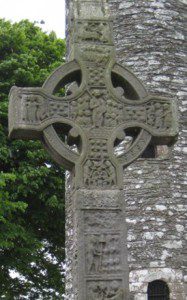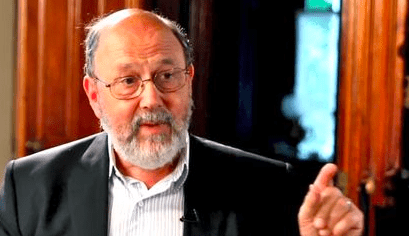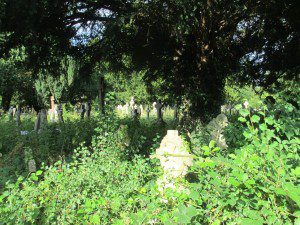 Christian theology has a distinct hope. Revolving around God and God’s glory, King Jesus as Lamb and Lion, the earth as the scene, and the people of God dwelling in peace and justice and love – and holiness and worship and blessedness, the Christian hope both provides comfort and a challenge to live now in light of that future.
Christian theology has a distinct hope. Revolving around God and God’s glory, King Jesus as Lamb and Lion, the earth as the scene, and the people of God dwelling in peace and justice and love – and holiness and worship and blessedness, the Christian hope both provides comfort and a challenge to live now in light of that future.
These elements of a big picture of eschatology, however, have been more than fogged over by so many debates about elements that might not only be speculative but almost destructive of the bigger elements in the Christian hope. Look, for most of Church history Christians haven’t believed in what is now called a pre-tribulation rapture (rapture of saints into the sky, tribulation of seven years, return of Christ, millennium, judgment, eternity) and listening to Christians talk about what ought to be a hope has become a battleground for when the rapture will occur.
Classic theology, and here one ought to include in various ways Eastern Orthodoxy, Roman Catholicism and much of Protestant thinking, has kept to the basic elements. Others have become fascinated with the unknown and unknowable, and sometimes positively wrong, and muffled the elements of Christian eschatology that need to be framed in terms of our hope.
Focusing on those elements is exactly what A.C. Thistelton does in his new book Life after Death: A New Approach to the Last Things (Eerdmans 2011). Thiselton is an exceptional New Testament scholar who has spent much of his career in the depths of hermeneutics, and this book reflects all of his expertise(s). The topics here include: death, dying and the meaning of life; doubt; scripture; waiting and expecting; the intermediate state and the millennium; return of Christ; resurrection of the dead; purgatory and the meaning of “eternal”; hell and wrath; last judgment and its connection of justification by grace through faith; the beatific vision.
This, my friends, is the way to do eschatology. Keep the big picture in mind and deal with significant topics, and don’t get lost in debates about stuff that is … well, not central.
We will all die. The Christian hope does not obsess with this (though some have), but neither does it suggest what happens after death doesn’t matter. The balance today has changed: for many, personal eschatology and what happens when we die no longer matter; what matters is the kingdom of God on earth. This is a false dichotomy because both matter, and the former is tied to the latter (not the latter tied to the former). But even more ignoring or suppressing personal eschatology is pastorally disastrous and pastorally insensitive. Pastors deal weekly with the dying, and one element of the faith of the dying is a desire for hope beyond death, for life after death. So I’m glad Tony Thiselton begins right here: with death and dying. Hence, the image at the top of this post — an image for hope beyond death. But the chp begins with an admission on Thiselton’s part: the original ms did not have a chp on death and dying.
He begins with Moltmann: to live as if there is no death is to live an illusion. Former generations feared sudden death because it gave no time for preparation; today’s folks desire a sudden death. An element of Christian hope is that a life cut short will be completed in the resurrection.
Grief is connected to love: deep love leads to deep grief. Moltmann: “The person who cannot mourn has never loved” (6). Jesus wept – and others observed how deeply he had loved Lazarus (John 11:33-36). In the world of Jesus: “Mourning was long, public, and serious” (8). It was done in communion with others, and not alone.
“If death constitutes only the end of life, we face meaninglessness” (9). If we live beyond death, then we see now only a half-complete sculpture of a life in progress. Until we see the whole we cannot judge accurately the part, which means our fellow humans are only partly seen and known. We now can have only an anticipatory, yet incomplete, vision of ourselves and of others. Meaning now is then only provisional. (Which means, for Thiselton, a little discussion of Wittgenstein, Pannenburg, Gadamer and Habermas.)
Big idea about meaning: if there is no life after death, we cannot know meaning; if there is, we have some provisional models for knowing what life now means in light of eternity. This is not Plato’s immortality but new creation. New creation gives life now its meaning.











